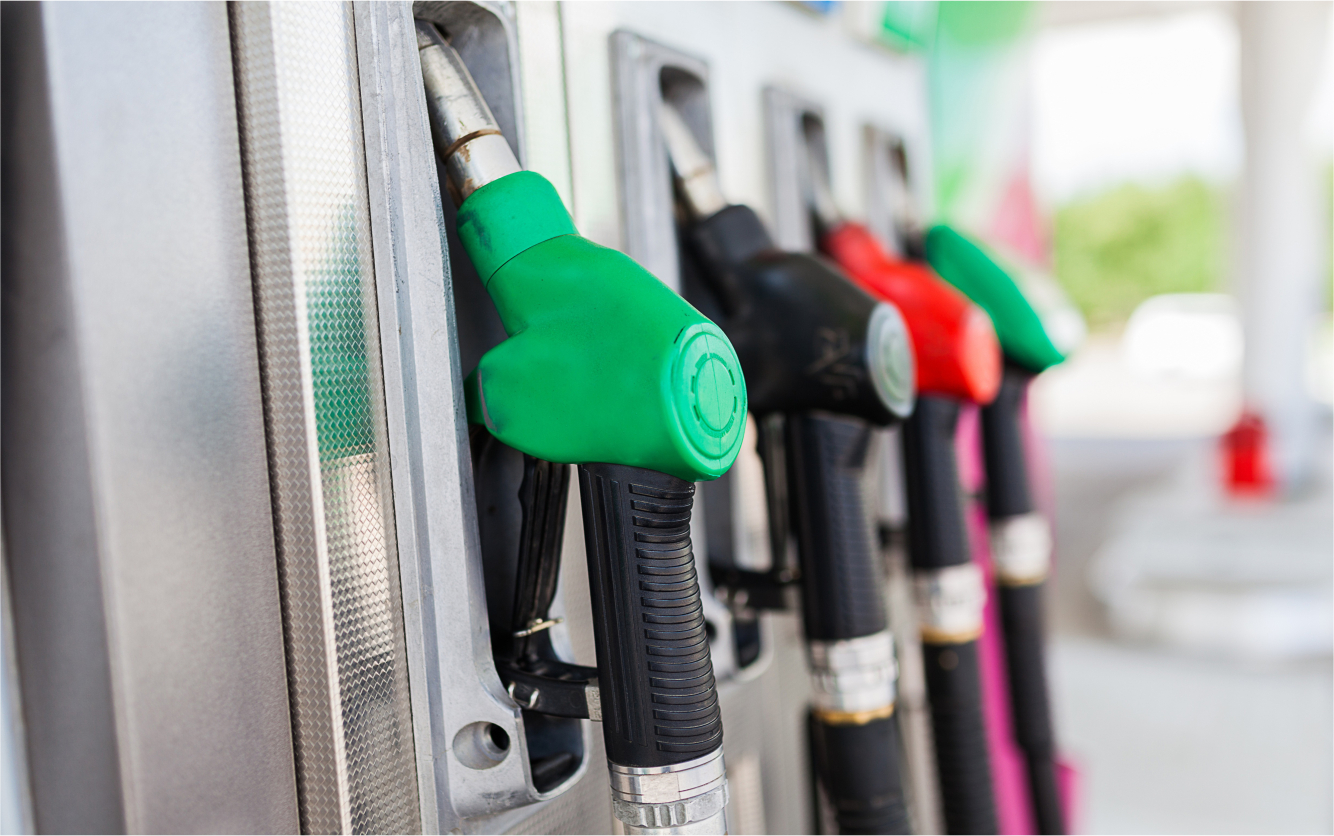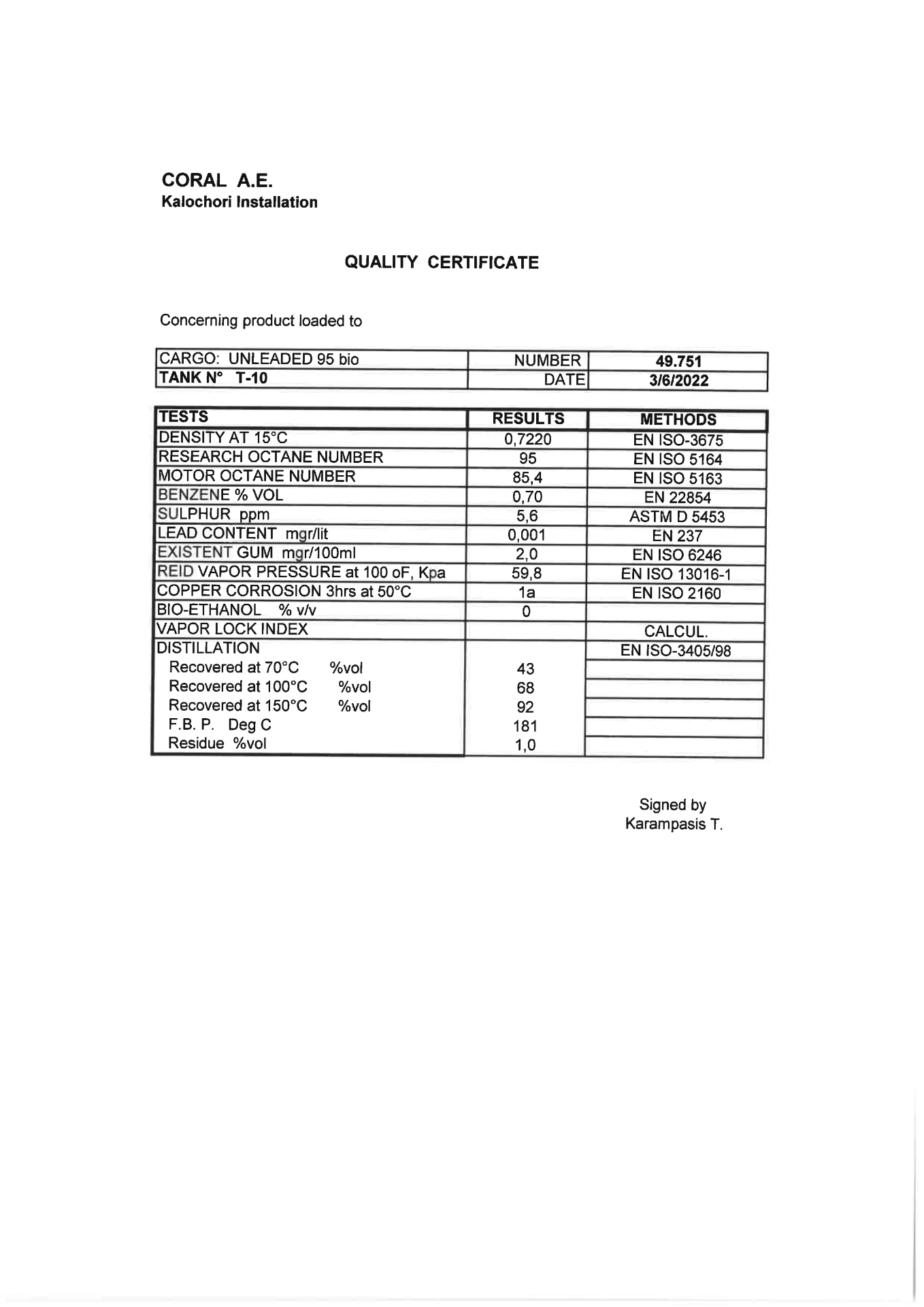GASOLINE A95
Gasoline, also spelled gasolene, also called gas or petrol, mixture of volatile, flammable liquid hydrocarbons derived from petroleum and used as fuel for internal-combustion engines. It is also used as a solvent for oils and fats. Originally a by-product of the petroleum industry (kerosene being the principal product), gasoline became the preferred automobile fuel because of its high energy of combustion and capacity to mix readily with air in a carburetor.
Gasoline is a complex mixture of hundreds of different hydrocarbons. Most are saturated and contain 4 to 12 carbon atoms per molecule. Gasoline used in automobiles boils mainly between 30° and 200° C (85° and 390° F), the blend being adjusted to altitude and season. Aviation gasoline contains smaller proportions of both the less-volatile and more-volatile components than automobile gasoline.
The antiknock characteristics of a gasoline — its ability to resist knocking, which indicates that the combustion of fuel vapour in the cylinder is taking place too rapidly for efficiency—is expressed in octane number. The addition of tetraethyllead to retard the combustion was initiated in the 1930s but was discontinued in the 1980s because of the toxicity of the lead compounds discharged in the combustion products. Other additives to gasoline often include detergents to reduce the buildup of engine deposits, anti-icing agents to prevent stalling caused by carburetor icing, and antioxidants (oxidation inhibitors) used to reduce “gum” formation.

Start ordering
The cost of services for the transportation of oil and oil products depends on many factors and is calculated individually for each order. Our experience in organizing this kind of transportation allows us to offer the best prices without loss of quality and minimum delivery times.
(+971) 58 680 18 81

